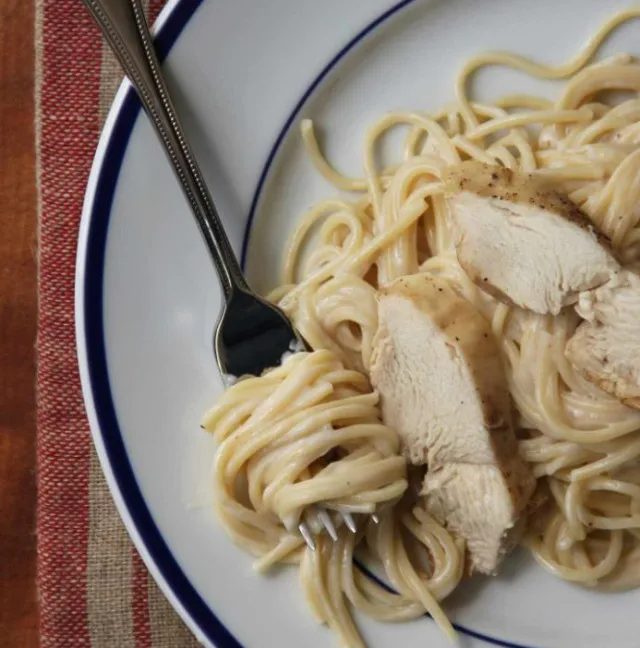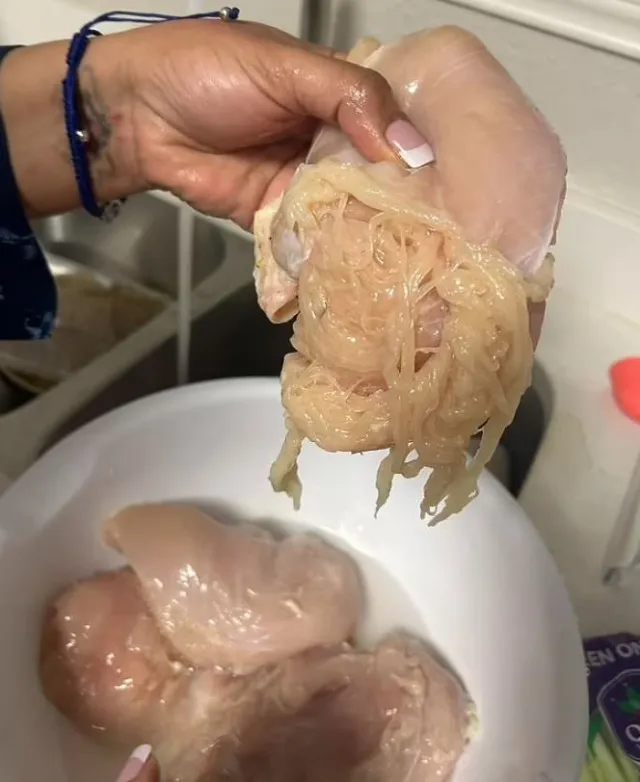A Texas mother’s viral post on social media has left people horrified after she shared pictures of “spaghetti chicken.”
Alesia Cooper was preparing chicken breasts for her children’s dinner when the raw meat began falling apart into stringy, squishy pieces.
“I think it’s fake meat,” Cooper wrote after purchasing the chicken from Aldi. Her post quickly went viral, sparking debates online.

What is spaghetti chicken?
Fact-checkers clarified that the phenomenon is known as “spaghetti meat,” a condition that affects a small percentage of poultry.
Spaghetti meat occurs due to breeding practices aimed at producing larger chickens with more meat in less time.

This rapid growth can limit oxygen to the muscles, causing the fibers to separate and the meat to become stringy.
Is spaghetti chicken safe to eat?
Despite its unusual texture, experts confirm that spaghetti meat is safe to eat. However, the meat may have a chewier texture than normal.

This issue stems from modern farming practices. Chickens today grow twice as fast as they did 50 years ago, according to the National Chicken Council.
In 1925, chickens took 112 days to reach a market weight of 2.5 pounds. Today, they reach over 6 pounds in just 47 days.
The science behind spaghetti meat
Researchers attribute the phenomenon to genetic selection, which breeds chickens with rapidly growing breast muscles.
Dr. Massimiliano Petracci, a professor of agriculture and food science, explained that rapid growth can outpace the chicken’s circulatory system.

Without sufficient oxygen, the muscle fibers degrade, causing the spaghetti-like texture.
Companies like Wendy’s and Whole Foods are shifting toward slower-growing chickens.
Whole Foods believes chickens raised more slowly, with better quality of life, produce tastier meat.
Spaghetti meat isn’t the only problem. Some chickens also develop “woody breast,” where the meat becomes tough and leathery.
Both conditions share a root cause: breeding chickens to grow too quickly for maximum profit.
“I debated posting this, but since I had to see it, so do y’all,” Cooper wrote alongside the grim photos.
Her experience highlights the growing concerns over modern poultry farming and its impact on meat quality.
The phenomenon of spaghetti meat raises questions about the ethics and sustainability of commercial chicken farming.
While safe to eat, the altered texture may deter consumers and prompt further scrutiny of farming practices.
This viral incident serves as a reminder to demand higher standards in food production and animal welfare.